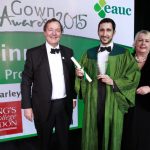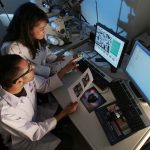Latest
LEAF – Systemic improvement of laboratory efficiency and sustainability
Part 3/3: Scientific laboratories are extremely energy and materials intensive. Burgeoning efforts have been arising to improve their efficiency and sustainability. To explore this Efficiency Exchange will be sharing a 3 part-series on the topic. Part 1 will examine the current state of Green Lab efforts. Part 2 will discuss the importance of research quality, and how the crisis of reproducibility is affecting sustainability/efficiency. Finally, Part 3 will introduce a new tool named LEAF, and how a group of research-intensive institutions are working together to address these areas
Reproducibility in Research – How it relates to Sustainability and Green Labs
Part 2/3: Scientific laboratories are extremely energy and materials intensive. Burgeoning efforts have been arising to improve their efficiency and sustainability. To explore this Efficiency Exchange will be sharing a 3 part-series on the topic. Part 1 will examine the current state of Green Lab efforts. Part 2 will discuss the importance of research quality, and how the crisis of reproducibility is affecting sustainability/efficiency. Finally, Part 3 will introduce a new tool named LEAF, and how a group of research-intensive institutions are working together to address these areas
Sustainability in Laboratories – Moving Forward
Part 1/3: Scientific laboratories are extremely energy and materials intensive. Burgeoning efforts have been arising to improve their efficiency and sustainability. To explore this Efficiency Exchange will be sharing a 3 part-series on the topic. Part 1 will examine the current state of Green Lab efforts. Part 2 will discuss the importance of research quality, and how the crisis of reproducibility is affecting sustainability/efficiency. Finally, Part 3 will introduce a new tool named LEAF, and how a group of research-intensive institutions are working together to address these areas
Peer mentoring and welcome workshops
At Nottingham Trent University (NTU), we are seeking to increase engagement and retention through student peer mentoring and the delivery of a new Welcome Workshop. This workshop, has been co-created and co-facilitated by our student mentors, is designed to instil a sense of belonging and student agency in all undergraduate first-years starting in September 2018.
Working collectively rather than competitively benefits all parties
All universities and student unions need to embrace a collaborative approach, participants in a recent workshop involving seven universities have said. Writers of a Times Higher article about the workshop, involving staff and students from seven campus universities, said that while the current HE policy environment encourages greater competition, there has never been a more important time for institutions to collaborate.
Sharing research equipment boosts industry in the north
The N8 Research Partnership has improved and updated its equipment-sharing database. This will make it easier to share apparatus from the region’s most research-intensive universities.
Nick Goldspink, interim co-director at N8, explains how the database's improvements will be a massive step forward to academics and to Northern industry, saving money, boosting efficiency and aiding research.
Case studies
Promoting the reuse of equipment: Loughborough University – March 2013
Loughborough University’s award-winning Kit-Catalogue® is an online system that can help any organisation to effectively catalogue, record and locate kit such as laboratory equipment, workshop machines, ICT and specialist tools. The aim of the Jisc-funded system is to reduce the costly duplication and double purchasing of equipment within HEIs.
Sharing advanced computing technology – N8 Research Partnership – case study – March 2013
Eight universities in the N8 Research Partnership are sharing a High Performance Computing (HPC) facility – a larger and higher specification machine than could be afforded or fully utilised by any one institution.
Sharing scientific equipment: University of Oxford – March 2013
The University of Oxford has carried out a range of initiatives to increase the intensity of research equipment and facilities use. The project encouraged sharing of equipment and the use of machines for extended periods of time, helping to reduce costs and share scarce resources.










